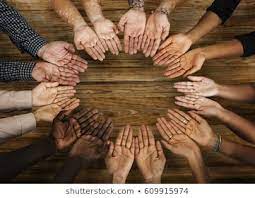 CARA Study Highlights Increasing Diversity in Religious Communities~ by Soli Salgado, Global Sisters Report
CARA Study Highlights Increasing Diversity in Religious Communities~ by Soli Salgado, Global Sisters Report
As women and men religious in the U.S. become more diverse both culturally and ethnically compared to previous generations, leadership and membership of their religious communities face the challenge of learning how to welcome new members and adjust religious life as they know it to these new cultural changes, according to a recent study.
Georgetown University’s Center for Applied Research in the Apostolate [5] conducted a national survey of new religious members, “Cultural Diversity in Vocations to Religious Life in the United States,” which sampled candidates/postulants, novices, those in temporary vows or commitment, and those who professed their final vows or commitment within the last 15 years.
Of the 231 respondents who are not members of their institute’s dominant culture, many elaborated on their observations or the specific challenges they’ve encountered, including “a presumption that the dominant culture is the best”; frequent reminders (though sometimes done endearingly) that one is the minority in the group; the glazing-over of the diversities within the “generic label of ‘Asian’” or Latino; the misunderstanding that comes with one’s background being particularly rigid with rules, which can “come off as being cold or distant or impersonal”; and the expectation that the individual learn about the dominant culture while others are not expected to learn anything about the minority culture.
The study found a high correlation between ethnicity and the likelihood of having grown up outside the United States. A total of 64 languages were reported when respondents were asked their first language. Nearly 80% said English, 6% said Spanish, and 4% said Vietnamese. Three in ten respondents speak two languages fluently, while nearly 1 in 10 speak three or more languages fluently.
Though half said they live in a community with members of a variety of cultural/ethnic backgrounds, the 7% of respondents who are the sole member of their ethnic background within their community, the survey found, are especially likely to report feeling “somewhat” or “very” challenged in the following ways:
Members with whom they live not understanding their culture (49%)
Not feeling understood by other members of their institute (32%)
Feeling isolated or lonely (28%)
Feeling they are asked too much to accommodate their culture to fit in with the dominant cohort (23%)
Their food preferences not being welcome in their community (23%)
Others reported more openness, with 9 in 10 respondents saying their communities are either “somewhat” or “very open” in welcoming those of different backgrounds in initial formation as well as in recruiting candidates from different cultures and accommodating families visiting from their respective cultures. To learn more click here
